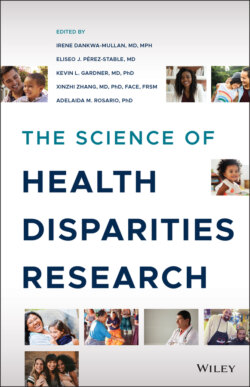Читать книгу The Science of Health Disparities Research - Группа авторов - Страница 75
4.4.4 Underresearched Constituencies
ОглавлениеQuestions on sexual and gender minorities (SGMs) were included on 10 recurring federal surveys, according to an Institute of Medicine report in 2011 [38] (an expansion and follow‐up after a 1999 volume on lesbian health) [39], but none measured gender identity. The committee producing the report met in open session three times to hear from invited speakers and members of the public, ask questions, and provide a forum to share knowledge. The committee recommended that researchers continue to collect data on sexual orientation and gender identity on federal surveys, and that the National Institutes of Health (NIH) foster more research in the SGM community.
The lack of data on the SGM community, like the sparse data on American Indian populations and other underresearched populations, cripples efforts to craft basic and effective interventions to enhance health and prevent health‐adverse consequences, including behavior‐related lung disease and energy imbalance when calorie consumption and expenditure are not equal. The lack of data means public health officials cannot construct an evidence‐based hierarchy of risks for the SGM community and prioritize those risks. The NIH has created the Sexual and Gender Minority Research Coordinating Committee, whose activities are led in part by the National Institute on Minority Health and Health Disparities. Among its goals are holding listening sessions with stakeholders to identify SGM health priorities and developing an NIH SGM strategic plan for health research [39].
